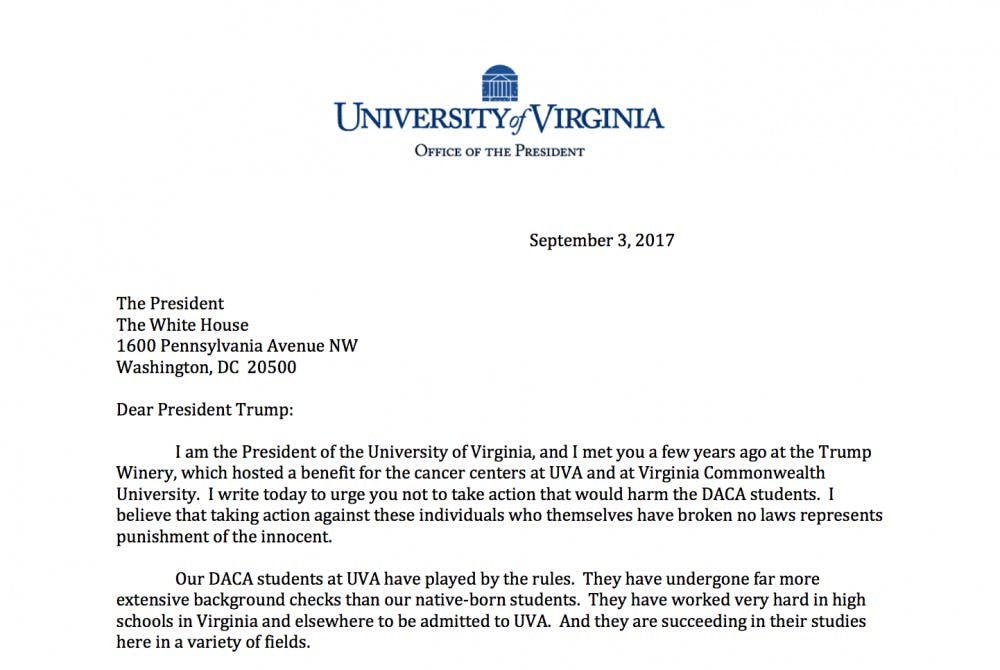University President Teresa Sullivan sent a letter to President Donald Trump Sept. 3 in an effort to persuade him to preserve the Deferred Action for Childhood Arrivals program. DACA was originally enacted through an executive order by former President Barack Obama in 2012.
“I urge you not to deport our students who themselves have not broken the law,” Sullivan wrote. “Although these students may have been brought to the U.S. illegally, they have taken all the required steps to demonstrate that they intend to become contributing citizens.”
Under DACA, undocumented immigrants who arrived in the U.S. as children are protected from deportation and can receive work permits and attend school. Program recipients are often referred to as “Dreamers” in reference to the DREAM Act, a piece of legislation that never passed Congress but would have given many protections similar to DACA. Nearly 800,000 people have been beneficiaries of the program.
However, the Trump administration announced on Sept. 5 that it is rescinding DACA, thus fulfilling one of Trump’s campaign promises to end the program and take a tough stance on illegal immigration. Trump has given Congress six months to consider whether to preserve the policy or terminate it. Speaker of the House Paul Ryan has most recently created an informal GOP working group on DACA.
Current DACA recipients whose protections expire between Sept. 5, 2017 and March 5, 2018 have until Oct. 5 to request a renewal of their status, while new applications are not being accepted at this time.
In her letter, Sullivan defended students at the University under the protection of DACA citing their commitment to academic study.
“Our DACA students at U.Va. have played by the rules,” Sullivan wrote. “They have undergone far more extensive background checks than our native-born students. They have worked very hard in high schools in Virginia and elsewhere to be admitted to U.Va. And they are succeeding in their studies here in a variety of fields.”
Sullivan also emphasized that DACA students at the University have not violated any laws themselves and are dedicated to becoming American citizens.
“Please uphold the American dream and allow DACA students to fulfill their potential as contributing citizens of the United States,” she wrote. “They are already on
that path, and need only our encouragement and support to succeed.”
In an interview with the Cavalier Daily Sept. 12, Sullivan also said the University was in the process of offering legal and academic help as well as counseling services to DACA students on a case-by-case basis. She said she had not received a response from Trump.
Following Sullivan’s letter, Student Council passed a resolution Sept. 5 in support of DACA recipients at the University, and DREAMers on Grounds held a protest Sept. 6 denouncing the decision to end the program.
There are currently fewer than 30 DACA students at the University, according to information released by University officials.
A full copy of the letter is included below:







